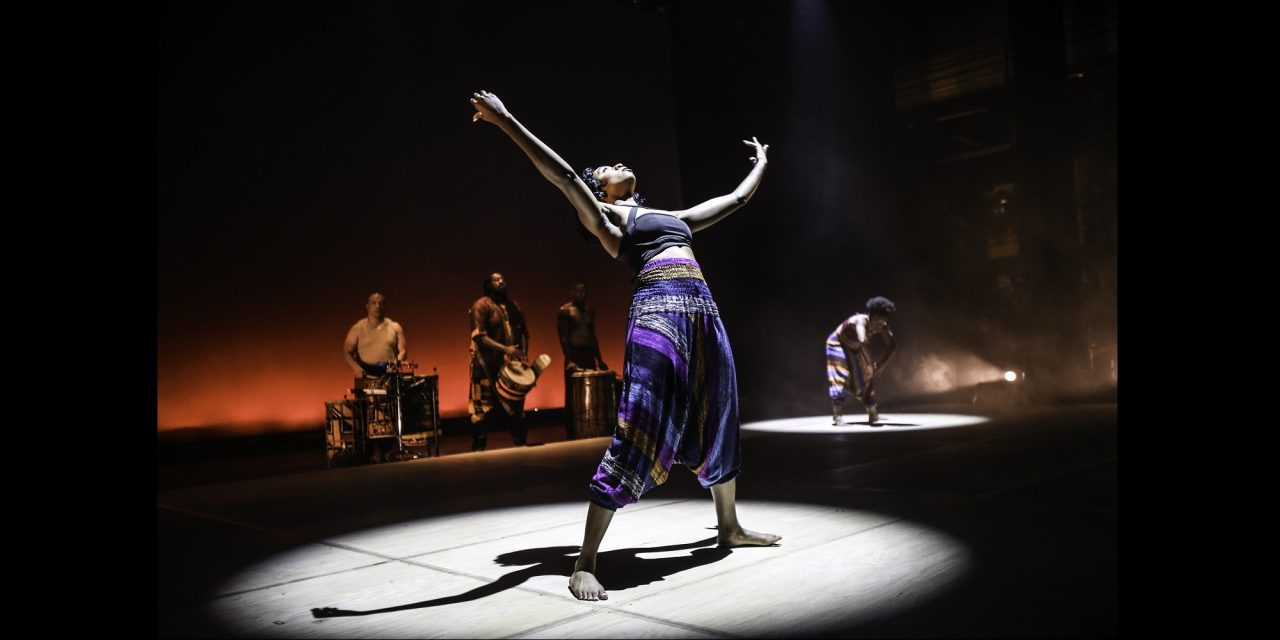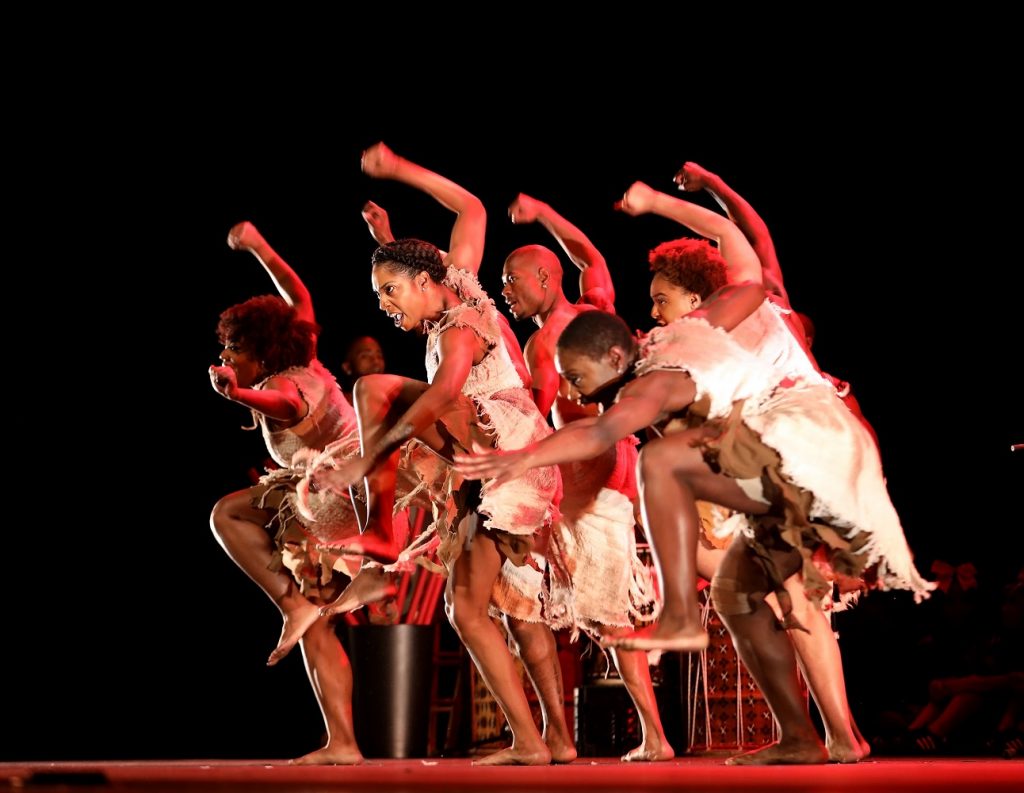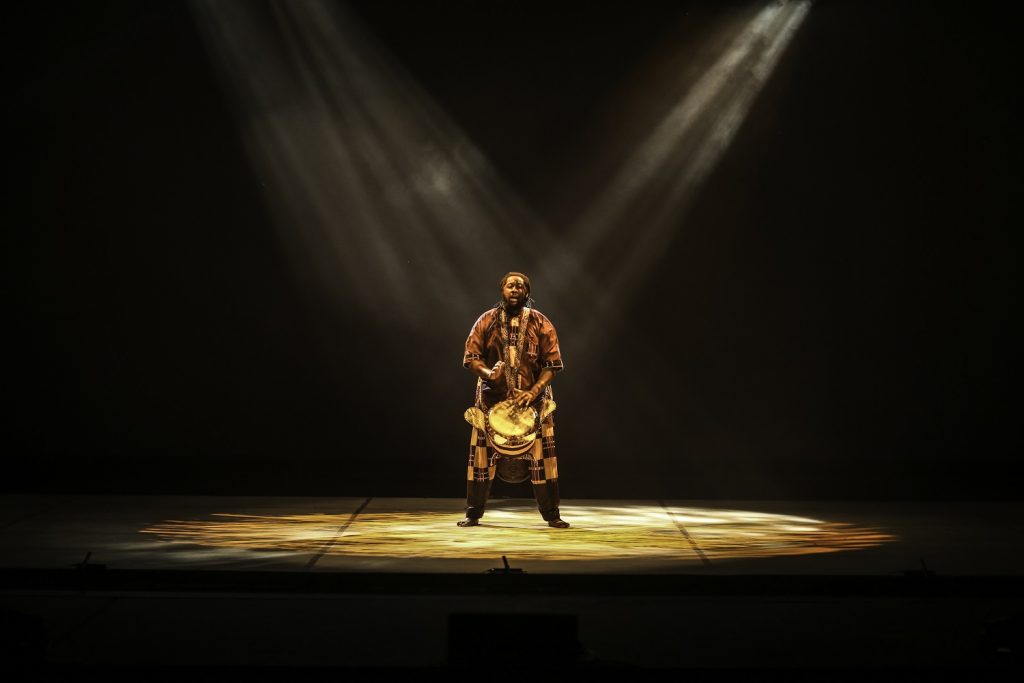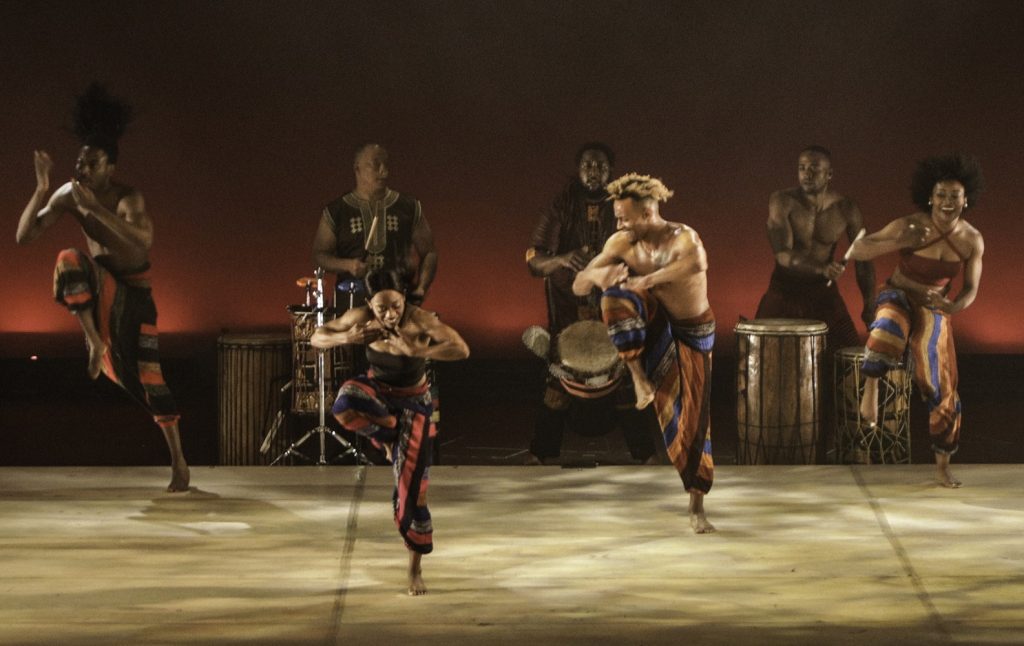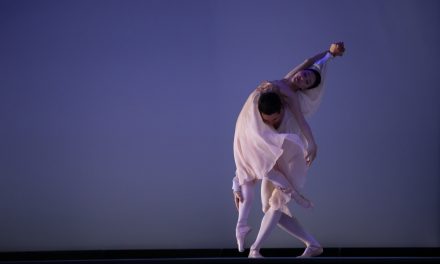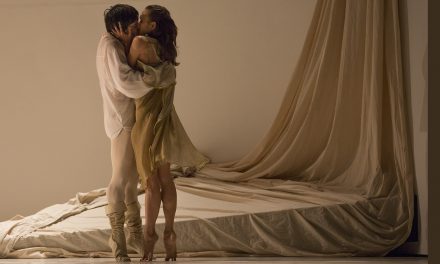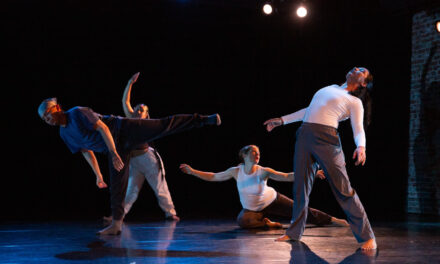Blending together history, culture, and dance, Step Afrika! tells the story of DrumFolk, referring to African people who through means of colonization had their drums taken away, but continued to create rhythm with their bodies. The show specifically derived inspiration from the Stono rebellion of 1739 which was an uprising initiated by 20 enslaved Africans from Angola in South Carolina. The enslaved Africans used their drums as a call to action and subsequently the drum became seen as an illegal weapon and the uprising resulted in restrictions on the rights of Africans to read, gather in groups, and wear clothing ‘above their stature’. The program notes that acclaimed Folk artist Bessie Jones called African people who had their drums taken away, “Drumfolk”, referring to a people who created rhythm within their bodies, thus creating dance forms such as ring shout, tap, Hambone, and stepping. Drumfolk tells an untold story of rebellion in the United States and an often-untold history of dance in this country. The contributions and influence of black people within art and culture are often celebrated, but rarely do we see the stories of resistance that led to the existence of such art forms. Drumfolk beautifully blends together the resistance, history, celebration, and beauty of black dance and music.
Presented last weekend at the Soraya Theatre, DrumFolk opened with the dancers in earth toned clothing and brilliant thick bands of gold around their necks and wrists. With quick paced transitions, the dancers seemed to seamlessly cycle through various dance forms and songs significant to the evolution of dance in black communities. There seemed to be influences of traditional African dance, tap, step, Hambone, and modern dance incorporated in the opening piece. The work moved swiftly and swept the stage like a giant gust of wind carrying the rich history of black dance in America. it ended with the performers chanting in a low and unanimous collective voice, “They took our drums away…but they could not stop the beat.” The chanting began at a low volume and progressively grew louder, and more powerful as the performers added in polyrhythmic sounds with body percussion. The continuous stream of rhythm was a fantastic way to maintain the attention and excitement of the audience, as well as provide a flow between pieces. Similar to the history the performers were retelling, the rhythm was always there and grounded the performers through moments of hardship and glory. The rhythm did not discriminate or isolate but rather united and enlivened the dancers through their journey on stage.
A memorable moment of the evening was after the opening piece, the resonance of a drumbeat filled the theatre with waves of sound. A light shone on one of the drummers as he performed walking toward the stage. His rhythm became increasingly complex as he took the stage, connecting with his drum under the light. The setting was simple, however, possibly the most impactful part of the performance of the night. I appreciated the intention of putting the drummer forward for the audience to appreciate and recognize the contribution of the musicians to dance that is often not acknowledged. It was also impactful as an audience member to have time to really focus and develop an appreciation for the performers creating the rhythm and foundation for the piece.
Step Afrika! was founded in 1994 by C. Brian Williams and is known as the world’s first professional company devoted to stepping, a polyrhythmic and percussive dance form that utilizes the body as an instrument. Stepping is truly a force of nature and a dance style I often seek out in performance because of its use of polyrhythmic precision, unison, and symmetry. Step Afrika! Has become a significant group in the United States because of its dedication to bringing Stepping all over the world through performance and hundreds of educational programs that teach youth Stepping and other dance forms. While I was working in Washington D.C, a hub for black arts and culture, it was rare to encounter dancers who had not heard or been influenced by Step Afrika!. Many of the youth involved in Dance Place, a non-profit organization in Washington D.C, were greatly influenced by Step Afrika! programming and order performances they had seen. Dance Afrika!’s impact goes beyond one show but across the country. They are fearless in their presentation and ability to empower audiences all over the world through performance and programming.
I felt the company’s dedication to their community through the performance. There were moments where audience members were invited to clap and chant along with the performers. It was their connection to the community that I believe made the show so influential and empowering. I left feeling that I had learned a piece of critical history of our country, dance, and culture. As dancers it is easy to forget the history that influences our bodies and movement. Dance Afrika! brought a history crucial to the evolution of dance and music as we know it to the stage and reminded us that to fully understand the glory and beauty of the present, we must acknowledge the hardship and resilience that led us to this moment in the present. Drumfolk tells a story of joy and resistance, a celebration of hardship and history, through rhythm and movement.
Written by Corrina Roche for LA Dance Chronicle, February 29, 2020.
To visit the Step Afrika! website, click here.
To learn more about The Soraya Theatre, click here.
Featured image: Step Afrika! in DrumFolk – Photo courtesy of the company.

